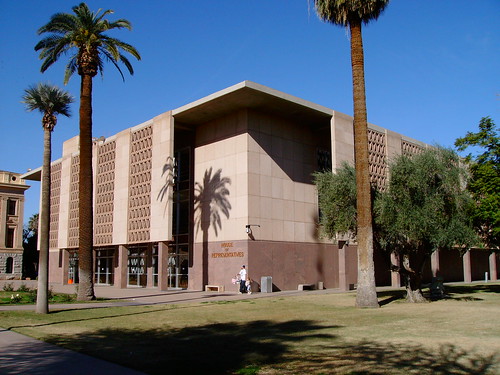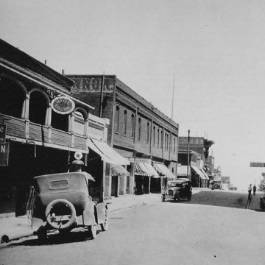Arizona Governor Jan Brewer today named Phoenix City Council Member Maria Baier as the new Arizona State Land Commissioner. Upon her departure from the Phoenix City Council, Ms. Baier will manage and direct the State Land Department, whose mission is to manage state trust lands and resources to enhance value and optimize economic return for the trust beneficiaries, consistent with sound stewardship, conservation, and business management principles supporting socioeconomic goals for citizens here today and generations yet to come. The mission is also to manage and provide support for resource conservation programs for the well being of the public and the state’s natural environment.
“I am very honored to add Ms. Baier to my cabinet,” Governor Brewer stated. “She brings numerous years of outstanding experience in the public and private sectors, with expertise in the areas of land use, natural resource management, growth and development and environmental quality.”
Ms. Baier was elected as a Phoenix City Councilwoman in 2007. Most recently, she Chaired the Economy, Commerce and Sustainability Subcommittee. She has also been a member of numerous additional committees including the Downtown and Aviation Subcommittee, Housing and Neighborhoods Subcommittee, Transportation and Infrastructure Subcommittee and the League of Arizona Cities and Towns Executive Committee. In addition, she served as the City of Phoenix Representative on the League of Arizona Cities and Towns and on the Maricopa Association of Governments Transportation Policy Committee.
Ms. Baier has also spent the past several years as President of MBC, Inc. a sustainability consulting firm specializing in sustainable land use and natural resource management practice. Prior to that, she was President and CEO of Valley Partnership, a trade organization whose pri mary mission is to “advocate responsible development” primarily on behalf of the commercial real estate development and Director of the Trust for Public Land Arizona Field Office.
Additionally, Ms. Baier spent ten years on the Executive Staff of the Office of the Governor, State of Arizona, serving two administrations. She served as Senior Policy Advisor in the areas of natu ral resources, growth and development, environmental quality, and criminal justice. She also has a background in communications, having served as Deputy Director of Communications and Lead Speechwriter while with the Governor’s Office and as Public Information Officer for the Office of Attorney General of the State of Arizona.
She is an active member of the Arizona State Bar and volunteers on numerous state boards and commissions including the Trust for Public Land Arizona Advisory Board, Great Hearts Academies Board of Directors, Valley Partnership Board of Directors, Agricultural Protection Commission and Central Arizona Partnership Board of Directors. She received her Bachelor of Arts Degree from the College of Liberal Arts at Arizona State University in Tempe and went on to receive her Juris Doctor from the James E. Rogers College of Law at the University of Arizona in Tucson. Ms. Baier resides in Phoenix with her husband Chris and their two daughters.




 Then they got the town itself to become the fiscal agent for a state grant from the Arizona Heritage Fund (private citizens can’t get these grants outright but can partner with municipalities). The grant would cover 60 percent of the project while Mary and Sally would finance the other 40 percent. But to get ready for the grant, which was to be dispersed as work was completed, the women had to spend a ton of money up front. So far, they’ve spent some $170,000, trusting that a hunk of that would be reimbursed by the grant.
Then they got the town itself to become the fiscal agent for a state grant from the Arizona Heritage Fund (private citizens can’t get these grants outright but can partner with municipalities). The grant would cover 60 percent of the project while Mary and Sally would finance the other 40 percent. But to get ready for the grant, which was to be dispersed as work was completed, the women had to spend a ton of money up front. So far, they’ve spent some $170,000, trusting that a hunk of that would be reimbursed by the grant.
You must be logged in to post a comment.